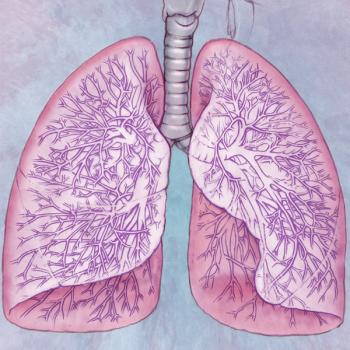
CURE spoke with Maria Ignez Braghiroli, M.D. about the need for individualized treatment for patients with NRAS-mutant metastatic colorectal cancer.

CURE spoke with Maria Ignez Braghiroli, M.D. about the need for individualized treatment for patients with NRAS-mutant metastatic colorectal cancer.

The World Health Organization (WHO) reclassified some types of brain cancers, giving a clearer outline on how to treat them.

Sibylle Loibl, M.D., Ph.D., discusses the GeparSepto trial and what it means for women with breast cancer.

Michael Choti talks about what kind of advances can be expected in treating liver cancer, including PD-1 inhibitors and neoadjuvant treatment.

More advances, such as personalized approaches, still need to be made in treating glioblastoma, says Jennifer Moliterno Gunel, a brain surgeon from Yale.

Tecentriq (atezolizumab) has been found to be non-toxic and has demonstrated a major survival advantage in patients with metastatic urothelial bladder cancer.

Eileen O'Reilly discusses the current barriers in treating pancreatic cancer, as well as what she sees for the future of the disease.

Volker Heinemann says early tumor shrinkage may be a better predictor than progression-free survival in colorectal cancer.

CURE spoke with Axel Grothey about advances in the treatment of colorectal cancer.

Allison W. Kurian offers insight on using multigene panel testing to discover breast and ovarian cancer risks that may have otherwise went undetected.

A phase 2 study showed that abemaciclib may be a promising option for some patients with breast cancer.

Testing for BRCA mutations is an important step in developing the treatment plan for patients with breast cancer, says Leslie Randall.

What are the next steps for immunotherapy in RCC? CURE spoke with Mark Ball to find out.

The role of radiation continues to change for patients with breast cancer, especially for those over the age of 70, for whom radiation might not be the best option.

Many advances have been made regarding immunotherapy to treat melanoma, and there is also more to come, says Antoni Ribas.

Phase 3 studies are giving investigators hope that Lynparza (olaparib) will gain FDA approval for the treatment of ovarian cancer, according to Ursula A. Matulonis.

Immunotherapy for the treatment of NSCLC will eventually be used in all settings, according to Edward Kim.


With dedication to research and advocacy, the National Brain Tumor Society is making strides in treatment of brain cancer.


The coming years look promising for advances in treatment of pediatric brain cancer, according to Matthias A. Karajannis.

Andrew S. Chi discusses some of the exciting new advancements for treatment of brain cancer.

Published: January 6th 2017 | Updated:

Published: January 13th 2017 | Updated:

Published: January 17th 2017 | Updated:

Published: February 19th 2016 | Updated:

Published: February 22nd 2016 | Updated:

Published: February 24th 2016 | Updated: